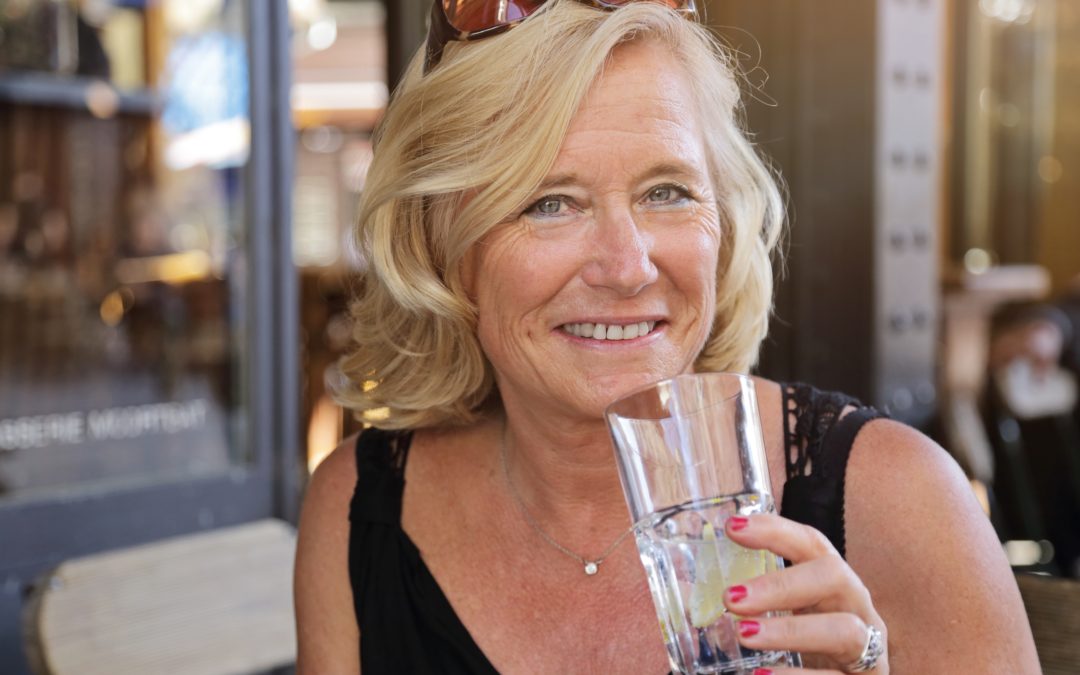The Importance of Drinking Water for Seniors
Dehydration is a constant risk for adults 55 and older who may not be drinking enough water. Some medications, such as diuretics, have dehydrating effects due to increased urination or causing the patient to sweat more. Seniors also may experience decreased thirst, or not find it as easy any more to get up to get themselves a glass of water. Decreased kidney function may also play a role in dehydration—our kidneys help us to properly filter and conserve fluids, and decreased kidney function can make us dehydrated.
How Much Water Should Seniors Drink?
It turns out that the answer has more to do with your size and activity levels than any commonly-accepted adages like “eight glasses of water a day.” You actually get quite a bit of water from your food, like fruits and vegetables and soups, and from other beverages like tea and coffee. It is important to note that drinking too much coffee or tea can actually dehydrate you, but just a mug or two won’t have much effect.
Instead of choosing an arbitrary number like eight glasses a day, you should aim to increase your fluid intake by a manageable amount at first. Try to fill a BPA-free water bottle, i.e. a Nalgene bottle, up with water at the beginning of every day, and try to empty it by the end of the day. You should monitor yourself for signs of dehydration and drink more fluids as a first treatment if you experience any of the symptoms listed below.
Signs of dehydration in younger people can’t always be used to identify dehydration in seniors. For example, you can check for dehydration in a younger person by checking for wrinkled or sagging skin that doesn’t bounce back when pinched. A senior, however, is likely to have this type of skin even when hydrated.
Signs of dehydration in seniors may include:
- Confusion
- Difficulty walking
- Dizziness or headaches
- Dry mouth
- Sunken eyes
- Inability to sweat or produce tears
- Rapid heart rate
- Low blood pressure
- Low urine output
- Constipation
Because seniors can experience decreased thirst, it is important to drink even when you don’t feel particularly thirsty. That’s when the water bottle trick can really help. You can also keep a water bottle near your favorite chair, or drink water every time you read the newspaper or check your email.
Dehydration is much easier to prevent than it is to treat, so be sure to drink more!


